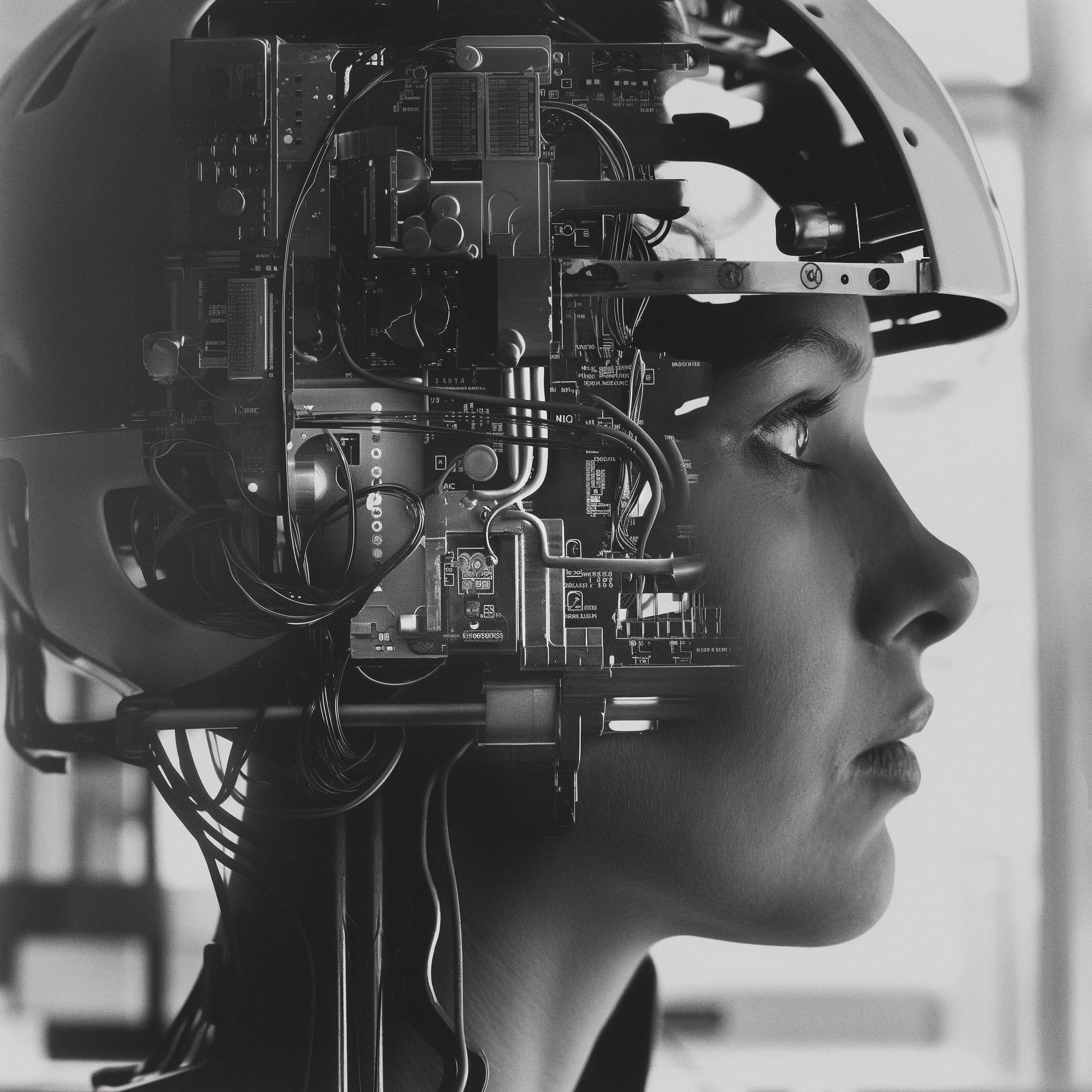So, will I be replaced?
The Automation Ultimatum

Creativity is what makes us human—or so we thought. Now, even creative jobs are on the brink of automation.
From AI image generators and text-to-video to intelligent content platforms, the machines are catching up to us faster than we ever could have imagined.
ChatGPT & Claude can already produce insanely human-like text, leaving everybody in a hot debate over whether these hive minds truly "understand" our collective language or are just "stochastic parrots" (randomly mixing pre-programmed responses).
If one thing is clear, the old skills that built creative careers are no longer enough for survival.
To stay ahead of the rise of robots, we need to focus on reimagining our value and cultivating distinctly human creative abilities. The future belongs to those who can master high-touch skills like strategy, empathy, and collaboration while complementing the capabilities of computers and each other.
It means accepting our limits. And knowing when to trust the machines. The creative skills required for great jobs are changing...
"Earn with your mind, not your time." - Naval Ravikant
Will I get left behind?
As automation reinvents the workforce, Creators have a distinct advantage in their ability to highlight the problems worth solving and ask questions that spark breakthroughs. We can spot emerging problems that are ripe for innovation that algorithms would otherwise overlook or deprioritize (just because).
A fusion of human insight and imagination is needed to drive progress and shift technology toward a more positive state...
Let's take a look at the research
Tech's increasing capabilities:
- McKinsey Global Institute: Automation could replace up to 800 million jobs globally by 2030, but new jobs requiring totally different skill sets will emerge.
Complementing technology:
- MIT Sloan Management Review: Skills that bridge technical/analytical strengths and soft skills like communication, collaboration, and problem-solving when dealing with human factors align well with the way the world is going.
Scarce skills:
- World Economic Forum: The Future of Jobs Report identifies critical thinking, problem-solving, creativity, and emotional intelligence as crucial skills for the future workforce.
Exceptional reward for exceptional skills:
- Brookings Institution: "Superstar" firms and individuals capture a larger share of the economic pie, driven by their exceptional skills and talent.
Knowing your own limits:
- Harvard Business Review: Over-reliance on AI and algorithms can be dangerous; human judgment and critical thinking are necessary to avoid biases and errors.
Versatility is key:
- McKinsey Global Institute: To navigate career transitions and changing job demands, people will need to adapt and acquire a diverse set of skills.
Continuous learning:
- World Economic Forum: The Future of Jobs Report emphasizes the need for continuous upskilling and reskilling initiatives to adapt to the changing job market.
Grit and perseverance:
- University of Pennsylvania: Research by Angela Duckworth highlights the importance of grit and perseverance as key predictors of success in various fields. (Go get your grit score)
These findings underscore the importance of lifelong learning, quickly adapting to changes, and developing a diverse set of skills that complement technology.
Now for the cold reality:
- Computers and AI can now do many tasks better than humans.
- The skills needed to stay employable are changing.
- Computer skills help but are definitely not everything.
- Focus on complementing tech with versatile real-world skills - interpersonal, creativity, strategy, and empathy.
- Understand computers and systems and leverage them to solve real-world problems.
- Average wages will stagnate. Exceptional skills will be rewarded more.
- More of the benefits will go to those with scarce skills in the global economy, such as quality ideas, labor, land, and intellectual property.
- Knowing your limits and when to trust technology will matter a great deal.
- Stay motivated, and don't lean too heavily on past success. Get comfortable with failure.
- Adaptability and grit determine success. Show up.
The automation age is knocking on our doors, asking us to reimagine problems and not just pump out solutions. The future belongs to those who can wield human imagination to define the next big challenges for technology to then march towards. How can you blend your unique human capabilities with the precision of technology to carve out a niche for yourself? Our creative edge will come from learning to craft better questions.
The machines are coming. Sharpen your skills accordingly.

